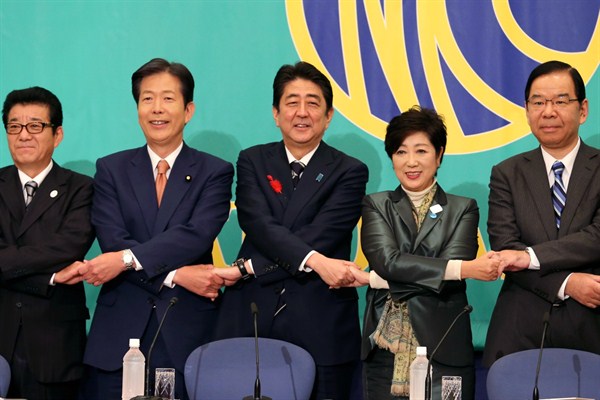When he recently called for snap elections to be held on Oct. 22, Japanese Prime Minister Shinzo Abe likely viewed his rising approval ratings in recent opinion polls as creating opportune conditions for him to consolidate power. Despite what appeared to be a serious challenge from his one-time colleague Yuriko Koike, who now heads an opposition party but has decided not to run herself, any threat from the opposition to Abe and his Liberal Democratic Party has since dimmed. In an email interview, J. Berkshire Miller, a senior visiting fellow with the Japan Institute of International Affairs in Tokyo and senior fellow on East Asia at the Tokyo-based Asian Forum Japan, explains why Japan’s opposition parties have historically struggled, why Koike’s party might meet the same fate, and what it all means for Japanese democracy.
WPR: Why have Japan’s opposition parties struggled historically to pose a credible challenge to the ruling Liberal Democratic Party, or LDP?
J. Berkshire Miller: The Liberal Democratic Party has dominated modern Japanese politics since the 1950s. This has been the case with the exception of two periods: from 1994 to 1996, when Japan had three short-lived administrations run by opposition parties; and from 2009 to 2012, when the Democratic Party of Japan, or DPJ, took power and spectacularly flopped shortly after. There have been a host of reasons historically why opposition parties have failed to gain traction against the LDP, including the LDP’s relationships with special interest groups in Japan, its capacity to transform itself and its ability to sell its image as the responsible party attached to the longstanding security alliance with the United States.

